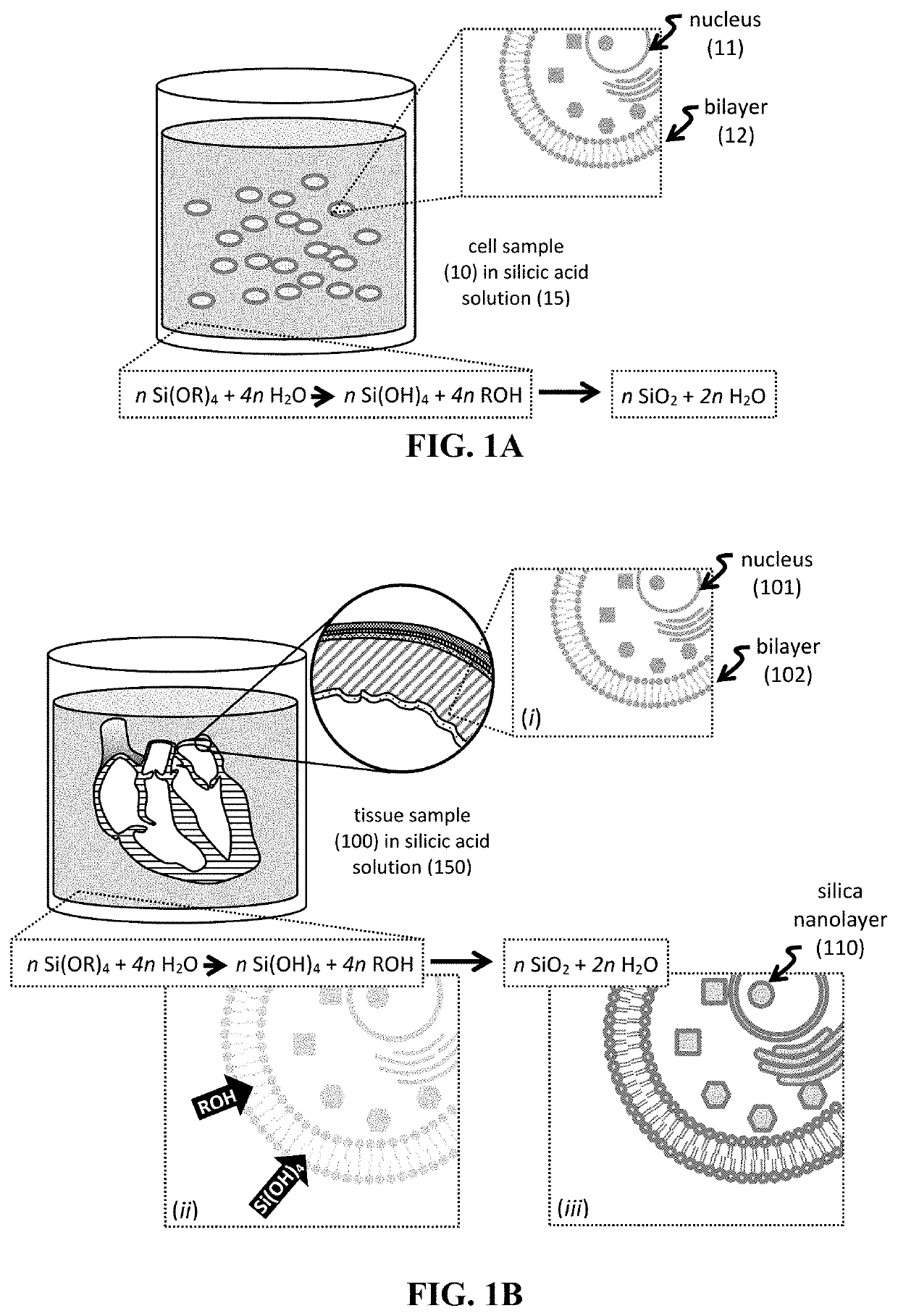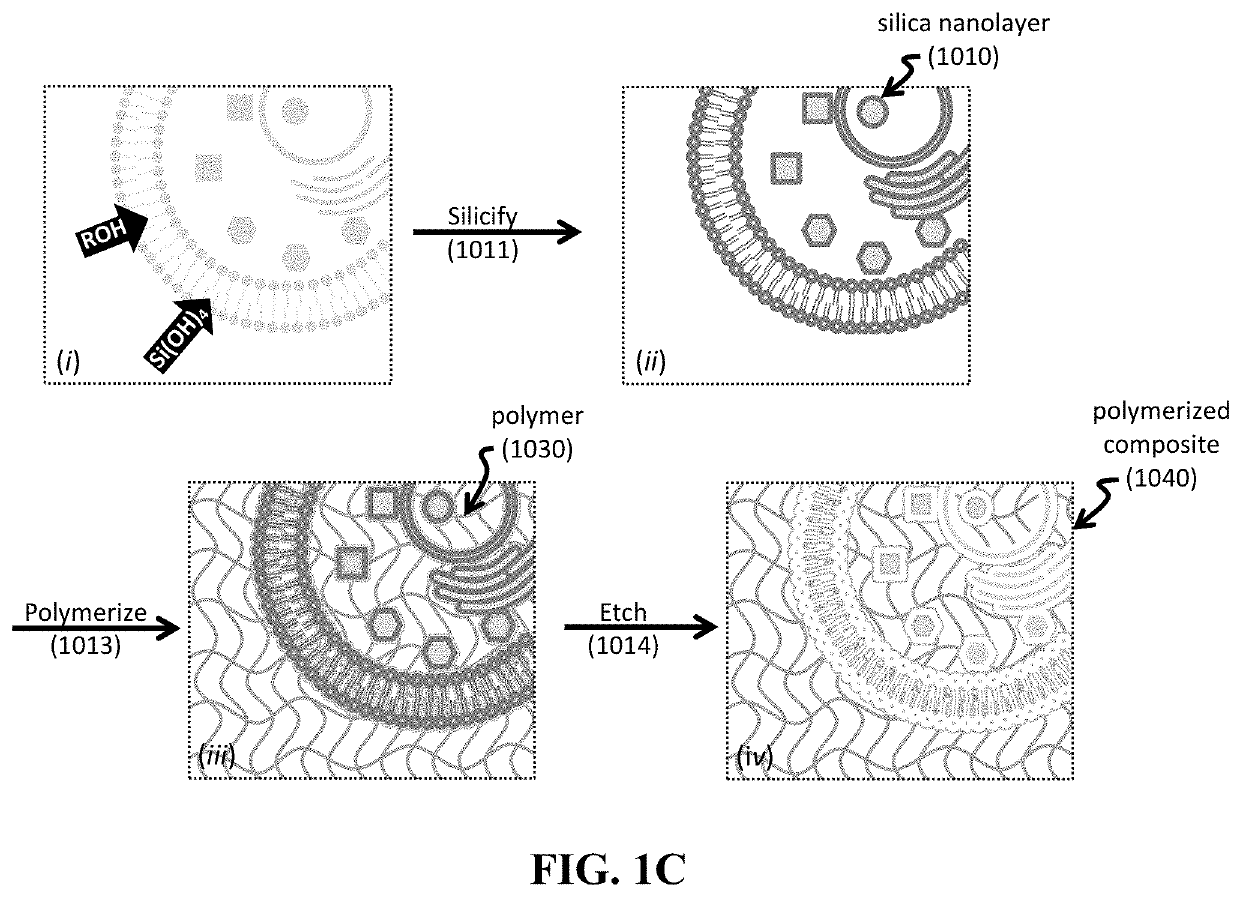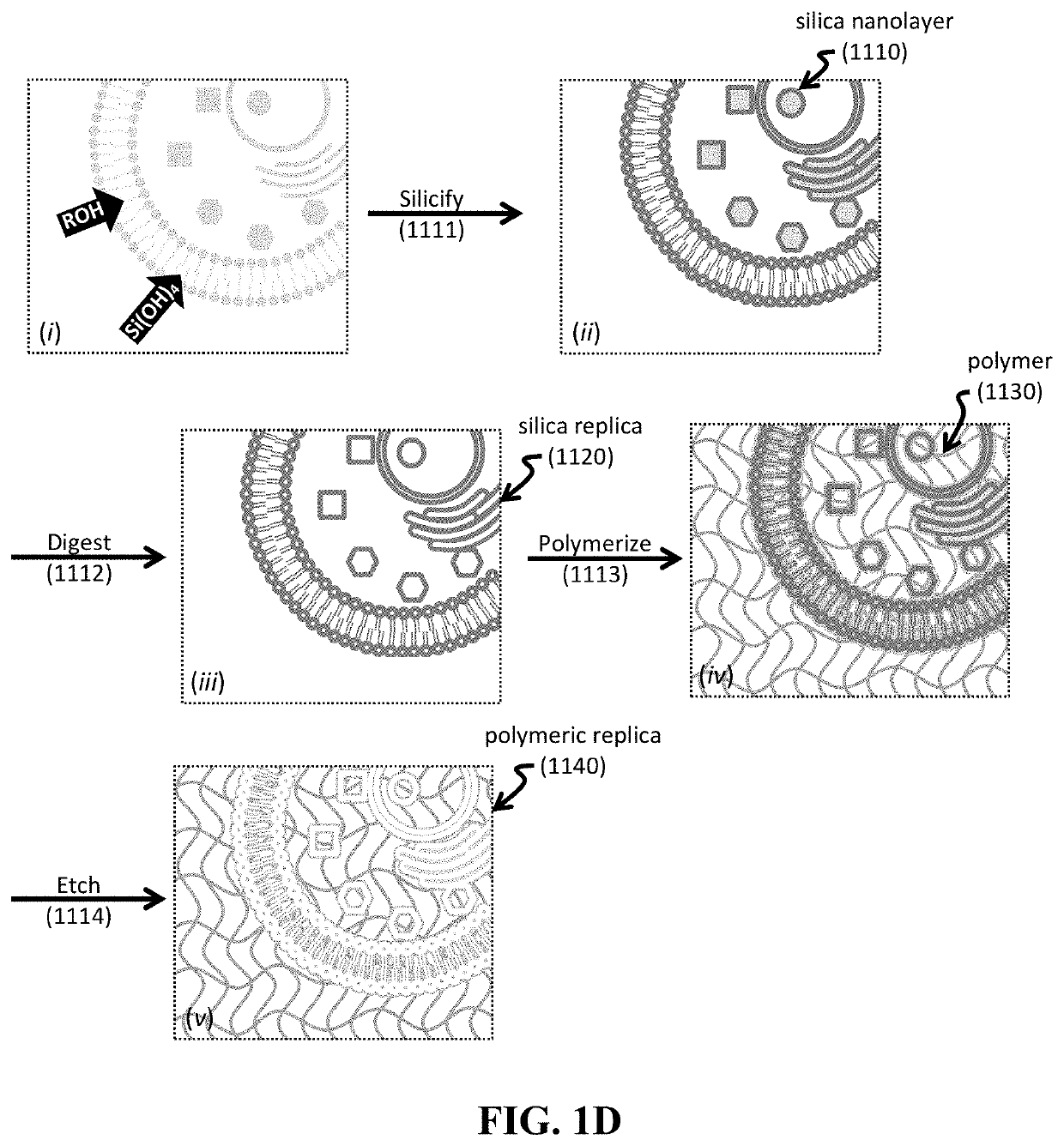Shape-preserving polymeric replication of biological matter
a polymer and biological material technology, applied in the field of shape-preserving polymeric replication of biological material, can solve the problems that the complex structure encountered in biological samples can be difficult to replicate synthetically, and achieve the effects of retaining shape, tunable stiffness, and/or biological function
- Summary
- Abstract
- Description
- Claims
- Application Information
AI Technical Summary
Benefits of technology
Problems solved by technology
Method used
Image
Examples
example 1
Particles Derived from Living Cells
[0161]The demand to create precision 3D soft materials is increasingly important for burgeoning applications such as flexible electronics, soft robotics, and tissue engineering. Often materials are needed at scales that enable relatively straightforward manufacturing approaches using extrusion, roll-to-roll, casting / spin coating, molding, and 3D printing. For complex 3D shapes, the manufacturing challenge increases as dimensions scale down, for example, to the size of micro and nano-particles. Thus, there has been considerable attention aimed at developing strategies for synthesis of complex or otherwise non-spherical soft colloidal particles.
[0162]Noteworthy approaches include emulsion-based techniques, microfluidic techniques, methods based on flow (photo) lithography, and particle replication in a non-wetting template (PRINT) method. However, these methods do not yet approach the structural complexity found in living systems such as single cells...
example 2
c and Therapeutic Cellular Vehicles
[0169]The constructs herein can be useful in the development of artificial red blood cells for mitigation of trauma scenarios, therapeutic delivery and defense, and as a potential carrier for advanced in vivo sensors (e.g., biometrics). To these ends, we can adapt silica replicas as templates providing cellular structures and functions and modify the replica to provide synthetic constructs having useful hard / soft chemistries.
[0170]The development of an effective blood substitute has been a decades long—and largely unsuccessful—scientific challenge. The requirements for artificial blood include mimicry or improvement of the oxygen carrying capacity and volume of whole blood. Such artificial blood substitutes should be formed from non-immunogenic materials, preferably with long (e.g., room temperature) shelf-life beyond donated blood, which has an estimated shelf life of 42 days when refrigerated. Three strategies have evolved to meet this need. Cros...
PUM
| Property | Measurement | Unit |
|---|---|---|
| diameter | aaaaa | aaaaa |
| thickness | aaaaa | aaaaa |
| thickness | aaaaa | aaaaa |
Abstract
Description
Claims
Application Information
 Login to View More
Login to View More - R&D
- Intellectual Property
- Life Sciences
- Materials
- Tech Scout
- Unparalleled Data Quality
- Higher Quality Content
- 60% Fewer Hallucinations
Browse by: Latest US Patents, China's latest patents, Technical Efficacy Thesaurus, Application Domain, Technology Topic, Popular Technical Reports.
© 2025 PatSnap. All rights reserved.Legal|Privacy policy|Modern Slavery Act Transparency Statement|Sitemap|About US| Contact US: help@patsnap.com



